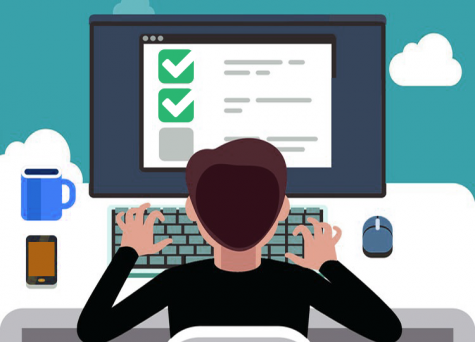How to Better Balance School and Sports?
Over the past few decades, college admissions have become increasingly competitive. Whereas the overall average acceptance rate for an Ivy league school (including Cornell, Harvard, etc.) was above 20% in the 1980s, this figure dropped to below 10% in recent years. Nowadays, “good” schools not only look for strong academic profiles but also strong extracurricular activities.
As the perfect combination of competition, excitement, and friendship, sports can be an interesting feature on college applications. However, sports are incredibly time-consuming. In particular, varsity athletes usually find themselves getting back to school at around 7:15 pm, and this demanding schedule is not always manageable for them. If you face the same challenge, I hope the following tips can help you out!
- Don’t Waste the Fragmented Time
Out of the 12 varsity athletes I interviewed, a vast majority of them strongly advised spending the fragmented time on school work. “There isn’t time to get much homework done, but using that half hour to organize your schedule makes studying at home less stressful,” said Eren Levine, a varsity athlete for the Girls Varsity Basketball Team. Thirty minutes may not feel like a very long time, but, by the time you get home, you’ll want to get your studying done as soon as possible. This half-hour not only helps you achieve this but also the state of mental clarity, which has many positive effects on our everyday lives. These include our interactions with others, our quality of sleep, our ability to focus better in class, and so on.
- Ask Your Family Member(s) for Help
For students who take challenging classes (e.g., HL bio or econ), studying for enough hours is necessary to get good grades. However, varsity athletes are not always able to study enough or study at all as the time to doing homework is already very limited.
A popular response on how to get ready for a test was to ask your parent/sibling for help. They can either listen while you talk out your thoughts or quiz on your knowledge so far. By doing so, the material will be embedded in your memory. This will make your life easier when the exams come – you don’t have to waste time on things you’re already familiar with!
- Use Flashcards Anywhere at Any Time
There is a reason Dr. Kirschenbaum, HL biology teacher, put this as one of the six ways to get a six in every class. If no one is available to help you study every night, flashcards are the perfect alternative as they allow you to memorize notes no matter where you are! Whether it’s your free period or if you’re on the bus, you can use flashcards anywhere at any time. “I like to make my flashcards look pretty so that I don’t totally die at the idea of studying,” says Sydney McDonough, a T3 student.
- Use Your Free Periods Productively
One of the biggest time wasters is using your free periods counterproductively. I understand the impulse to watch Netflix and to eat out with friends, but the key to organization is the determination to stay on track with the schedule you’ve set for yourself. Not only are you able to get your work done more efficiently, but you’ll also have more time to focus on other aspects of your life (social, personal and, of course, athletic)! High school students usually only have about two or three free periods a week, which can make a huge difference when you have to prepare for a test, an FOA, a written task, the TOK presentation, and numerous other IB assignments… So, try to make your free periods as productively as possible!
Endnote
Getting organized is among everyone’s challenges, and this challenge is worth the efforts as it will prepare you for life-long success and happiness. With these tips on how to balance school and sports, I hope they can shed some insights on organization skills and help you excel in both areas. Good luck!








